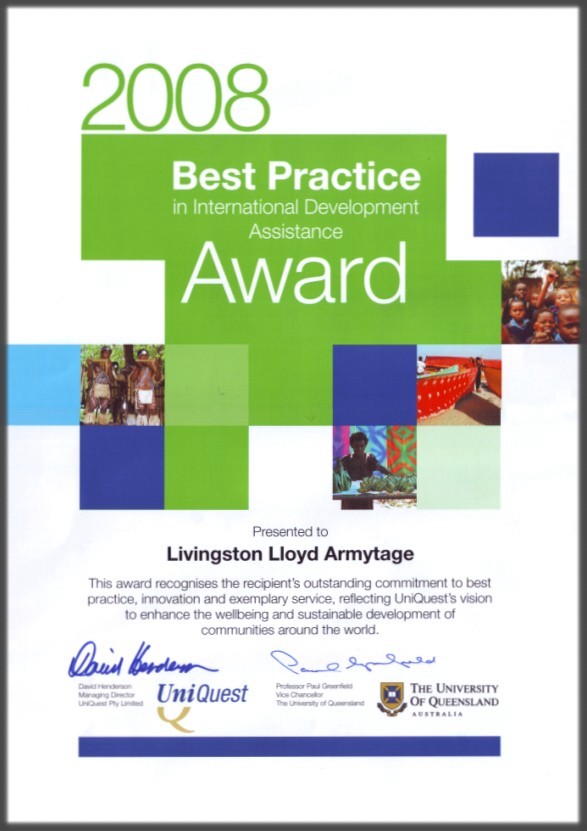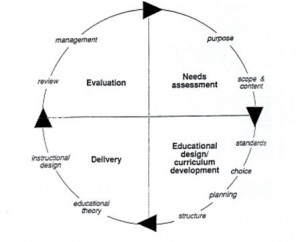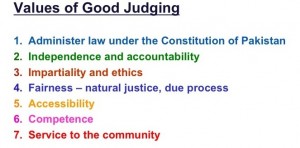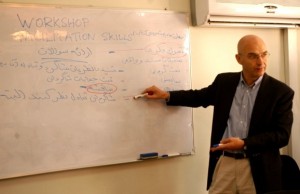The Centre for Judicial Studies offers workshops in professional development, especially for judges, lawyers, prosecutors, other law professionals and law users. They range in content from strategic planning to curriculum development.

University of Queensland
Best Practice Award in International Aid
2008
» Workshops
» Curriculum Planning
Workshops
Judicial Ethics – Bangalore Principles:
Interview with case study examples
Enabling Rights (1-5 days)
 |
A leadership workshop for courts to dismantle barriers to justice and enable right-holders to bring claims to court, focusing in particular on the rights of women. Includes participation of NGOs and community groups through raising awareness of legal rights and the role of courts.
|
Values of Good Judging (1 day)Values are arguably the most important qualities of the good judge, yet they may be hard to see and challenging to teach. This workshop focuses on these values, as distinct from the knowledge and skills that are required by judges. Click here for an excerpt from discussions with judges from Baluchistan, conducted at the Federal Judicial Academy, Pakistan, in late 2015. |
Train-the-trainer and Faculty Development (1-28 days)
International human rights law (1-5 days)
Introduction to fundamental international human rights law, including a survey of the major international and regional treaty instruments and universal customary norms; recognition, application and effectiveness of international standards in domestic tribunals; case studies specially selected and designed for participants.
Courtroom communication skills (½-2 days)
Practical techniques of oral and written communication skills for judicial officers: maintaining order and control in the courtroom, managing advocates, decision-making and giving decisions effectively.
Expert witnesses, and forensic evidence (1-2 days)
A popular inter-disciplinary life-saving tool-kit for non-legal experts giving evidence in court. Includes an induction to the court system and how it works; the rules of evidence and how they affect the role of the expert witness; preparation of expert reports; giving evidence in court under examination; and how to survive cross-examination.
ADR, dispute resolution, mediation and negotiation skills (1-3 days)
A powerful skills development program for lawyers and non-lawyers to avoid and/or resolve disputation by adopting a mutual-interest approach, cooperative communication techniques, tactics and counter-tactics; applying principles to practical problem-solving using numerous case-studies specially selected and designed for participants.
Judicial decision making and judgment writing (½ – 1 day)
Practical techniques in efficient and effective decision-making designed for judicial officers. Instruction on guaranteeing procedural fairness and comprehensibility.
Project Management Cycle

 Equality before the law, race/gender neutrality (½ – 3 days)
Equality before the law, race/gender neutrality (½ – 3 days)
A potentially life-changing experience in applying the precepts of equality before the law to contemporary – often controversial – situations coming before the courts; recognising the significance of hidden attitudes and values towards diversity pertaining to race, culture, gender, ideology or sexuality; assessing and redressing the impact of stereotyping; case studies specially selected and designed for participants.
Organisational strategic planning and visioning (1-5 days)
Facilitating workshop processes for self-directed organisational planning. Includes mission-setting, visioning, target and priority-setting, and action planning.
Performance management (½ – 3 days)
Applying notions of quality, service and client satisfaction to the delivery of judicial and legal services, and developing visible indicators for reliable measurement and assessment of performance.
Managing legal risk for corporate managers (1-10 days)
Program for non-legally trained managers to diagnose exposure to legal risk; plan, implement and evaluate risk management strategies; and monitor the delivery of legal service providers. Case-studies on the application of legal concepts and principles of duties of care, contract, trade practices, consumer protection, and intellectual property right risks.
Educational evaluation
Orientation and induction training
Conferences, seminars and workshops
Publishing bench books, manuals and digests
Electronic publishing
New technology, computer training and electronic legal research
Workload management, complex litigation, and cost/delay management
Organizational performance reviews
Training in program design
Other workshops
- Access to Justice Reform
- Case Management and Delay Reduction
- Dispute Resolution Skills for Judicial Officers
- Presentation Skills
- Forensic Evidence and Expert Witnesses
- Judicial Ethics
- Needs Assessments and Evaluation Techniques
- Managing Client Satisfaction
- Performance Indicators for Legal Practice
- Law for Corporate Managers
Curriculum Planning
| Content Pitch |
Substantive Law |
Court Procedure |
Judicial Skills |
Ethics & Conduct |
Judicial Management |
General Other |
| Induction Orientation |
||||||
| In-Service Update |
||||||
| Networking Problem Solving |
||||||
| Specialist Advanced |
||||||
| Refresher |

